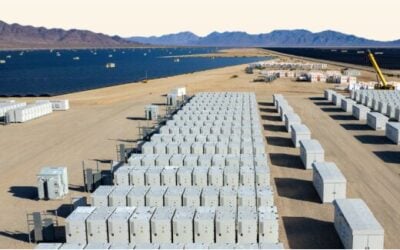Competition generated in part by the transport sector has catapulted lithium to its position as storage technology frontrunner, according to Volker Wachenfeld, senior vice president for hybrid and energy storage integration at SMA Solar Technology.
Writing in a blog for PV Tech Storage on integrating batteries into storage systems, Wachenfeld said different battery technologies were being chosen for different applications that best fitted the specific characteristics of each. Flow batteries look the most appropriate for long duration applications, for instance, lithium works well in providing high power over short durations, while lead acid is low on cost and can be used effectively for applications that are not highly demanding of battery cycle life and efficiency.
“The major game changer was the competitive situation on the market,” he wrote. “Whereas sodium battery suppliers have not been facing strong competition, and actually, there are only three or four of them owning the IP to provide solutions, the lithium world has had to face the fight for the pole position in the e-mobility projects of large OEMs.
“Resulting in huge investments into R&D as well as production capacity, lithium suppliers succeeded in bringing down the costs in a way that changes the game completely,” he added.
Try Premium for just $1
- Full premium access for the first month at only $1
- Converts to an annual rate after 30 days unless cancelled
- Cancel anytime during the trial period
Premium Benefits
- Expert industry analysis and interviews
- Digital access to PV Tech Power journal
- Exclusive event discounts
Or get the full Premium subscription right away
Or continue reading this article for free
“Comparing current or recent tender results for large scale energy projects, lithium seems to beat sodium even if the costs per kWh are compared. And in residential markets, the first lithium battery systems provide a better pricing than lead acid systems, if the costs per ‘usable’ kWh are taken into account – a result of the fact that lithium batteries allow lower depths of discharge without a reduction of the expected lifetime.”
The rapid improvements in lithium technology have now been borne out in deployment numbers wrote Wachenfeld.
“Comparing the figures on the German residential energy storage system (ESS) market, within two short years, from a small share of lithium installations that was not really challenging the leading position of lead acid battery based systems, [lithium is now] dominating this market with more than 80% of installations today.”
Read the full blog here.
The rapid improvements in lithium technology have now been borne out in deployment numbers wrote Wachenfeld.





